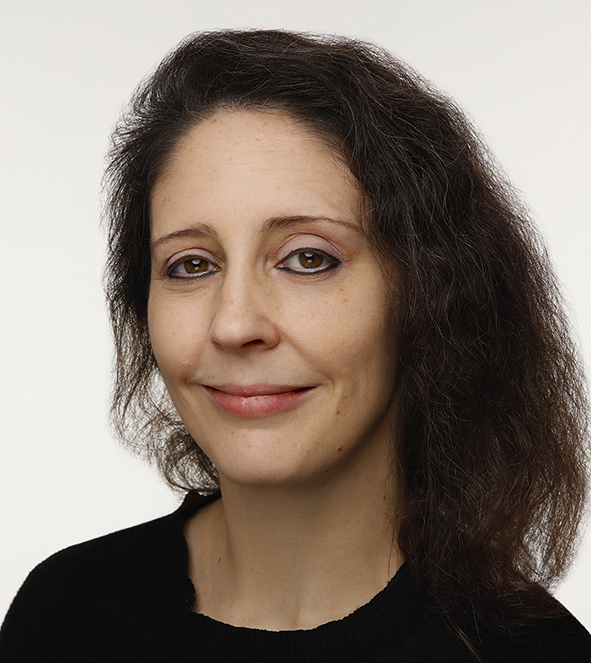Domenico Dragonetti (1763-1846)
History’s first-known double bass virtuoso, the Venice-born player initially received violin lessons from a local shoemaker before taking up the bass on which he showed considerable talent. In 1794 he moved to London where he met Italian violinist Giovanni Battista Viotti, with whom he would form a duo partnership. Over the course of his career, he played for the Emperor Napoleon at the palace of Prince Staremberg, performed with violin virtuoso Nicolò Paganini and met Haydn and Beethoven. He is also remembered today for the Dragonetti bow, which he developed throughout his life.
Giovanni Bottesini (1821-1889)
Known as the 'Paganini of the double bass', Bottesini achieved international recognition as a touring virtuoso, and was also a conductor and prolific composer. Initially a violin student, the young Bottesini achieved proficiency on the bass in a matter of weeks in order to earn a scholarship to the Milan Conservatory in 1835. He left the conservatory in 1839 and toured throughout the United States and Europe. From around 1870 he devoted an increasing amount of time to composition, producing a large number of operas, sacred works, orchestral pieces and works for the double bass.
Pedro Valls (1865-1935)
Virtuoso, composer and founder of the Catalan school of double bass playing, Valls was taught by José Rovéda, himself a student of Bottesini, and in turn taught Josep Cervera-Bret, who composed more than 60 double bass works. Valls' experiences of Bottesini’s performances in Barcelona inspired him to emulate the Italian maestro’s bel canto approach, though his works showcased native Spanish elements.
Serge Koussevitzky (1874-1951)
Celebrated as music director of the Boston Symphony Orchestra (1924-49), the Russian-born conductor started his career as a double bass virtuoso, performing across Europe and composing a concerto for his instrument, which he premiered in Moscow in 1905. Born into a family of musicians, he received a scholarship to the Musico-Dramatic Institute of the Moscow Philharmonic Society at the age of 14, where he studied the bass. He joined the Bolshoi Theatre orchestra at the age of 20 in 1894, and succeeded his teacher, Rambusek, as the principal bassist in 1901.
Rodion Azarkhin (1931-2007)
Renowned for his visceral performances and transcriptions, the Russian virtuoso’s technical prowess and innovation helped to expand the double bass’s scope. A graduate of the Leningrad Conservatory in 1954, he continued his studies as a postgraduate student at the Moscow Conservatory under cellist Sviatoslav Knushevitsky. His repertoire of more than 200 works featured his own arrangements of instrumental pieces by composers including Bach, Dvořák, Saint-Saëns, Tchaikovsky and Paganini, as well as original compositions for double bass.
François Rabbath (b.1931)
The French-Syrian musician discovered the double bass at the age of 13 when one of his brothers brought an instrument home and allowed him to experiment with it. After studies at the Paris Conservatoire, he made his first solo album in 1963. Known for his refusal to accept traditional limitations - whether in terms of genre or instrumental technique - Rabbath is revered for his individual style and virtuosity. A partnership with the double bassist-composer Frank Proto led to several specially-written compositions for Rabbath, including the Concerto No. 2 and Fantasy for double bass and orchestra. His three-volume Nouvelle technique de la contrebasse outlines his techniques for students.
Gary Karr (b.1941)
In 1962, Karr sprang to fame as a soloist in a televised New York Philharmonic Young People’s Concert conducted by Leonard Bernstein. As a solo bassist, he has played worldwide and had multiple pieces composed for him, including by Henze and Schuller. He founded the International Society of Bassists in 1967, which today has members in 40 countries. He has taught at Juilliard, the New England Conservatory of Music and Yale University, and published a series of method books.
Chi-chi Nwanoku (b.1956)
The British musician was a founder member and principal bassist of the Orchestra of the Age of Enlightenment, a position she held for 30 years. She is also the founder of Chineke!, Europe's first classical orchestra made up of a majority of black and minority ethnic musicians, with whom she regularly performs. Nwanoku has also served as principal double bass of the London Mozart Players, Academy of St Martin in the Fields, English Baroque Soloists, London Classical Players and the Orchestre Revolutionnaire et Romantique. She is professor of double bass historical studies at London's Royal Academy of Music.
Edgar Meyer (b.1960)
Oklahoma-born double bass virtuoso Edgar Meyer won the MacArthur 'Genius' Award in 2002 and has won multiple Grammy Awards. He has also performed and recorded with cellist Yo-Yo Ma, mandolin player Chris Thile and banjo virtuoso Bela Fleck. His compositions have been performed by ensembles including the Boston Symphony Orchestra and he is widely known for his versatility, recording jazz, classical and bluegrass works. He is currently visiting professor of double bass at the Curtis Institute of Music in Philadelphia.
Leon Bosch (b.1961)
The British double bassist grew up in South Africa, and was principal double bass of the Academy of St Martin in the Fields from 1995 until 2014. A prolific chamber musician, recitalist and concerto soloist, he has played a significant part in the exploration of little-known music for double bass, both in live performance and on disc, and has also expanded the repertoire with a number of commissioning projects. In recent years he has transitioned more into the world of conducting, and is also artistic director of the chamber music ensemble I Musicanti. Bosch holds a professorship at Trinity Laban Conservatoire of Music and Dance in London.
Photo: Leon Bosch © Juno Snowdon / Art Direction Adam Hypki
